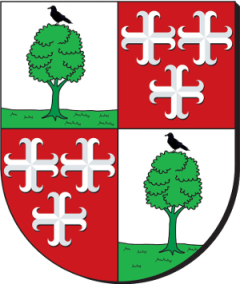Introducing Maartje Duin:
After ‘The plantation of our ancestors’, I started to delve further into my ancestors. More specifically, into the relationship between my great-grandmother, Marietje countess van Lynden – Calkoen (1886-1986), and her servant, Mina Marinusse (1912-2003). For half a century their lives were intimately intertwined: before the war at Ter Hooge castle near Middelburg, afterwards at Berkenbosch in Oostkapelle.
As the countess’ great-granddaughter, I have known both women and have felt a lifetime of discomfort over their relationship, which I see as the epitome of unfreedom. But what did freedom mean in 1930s Zeeland? And how did that change in the 20th century, which was revolutionary for women?
In the podcast series ‘Mina & Madam’, I search for answers. In conversations with family and acquaintances of both Mina and Madam, I stumble upon a rich history of women that keeps overturning my assumptions. In eight episodes, ‘Mina & Madam’ tells a story of class, choice and dependency that spans generations. It raises bigger questions: what did Mina and Madam pass on to us about what you can be as a woman? And can you ever break free from your background?
Archival research
As descendants of Marietje countess van Lynden – Calkoen, we are in the happy circumstance that the diaries she kept from the age of 13 to 100 have been preserved. In no fewer than 87 volumes, she describes from day to day her childhood, her marriage to Rudolph Willem Count van Lynden, pre-war life at Ter Hooge Castle near Middelburg and post-war life at Berkenbosch near Oostkapelle. I understand from historians that we have a treasure on our hands.
Unlocking these diaries is a very labour-intensive process, for which I formed a working group of family members a year ago. With assistant Lotteke Boogert, graduating historian, we are in the process of inventorying them and transcribing parts. We are working towards an inventory in which anyone can search by name or event.
Public outreach
Excerpts from the diaries will be included in the podcast. With this, we hope to reach as large an audience as ‘The plantation of our ancestors’, which was listened to over 1.5 million times. The VPRO history programme OVT (NPO Radio 1), where the series will be broadcast spring 2024, already accounts for 250,000 listeners.
In addition, we are specifically targeting a Zeeland audience through an audience participation programme. We will organise a series of meetings at different locations, asking the audience to share their experiences on themes from the podcast. We will develop this programme further in the coming year. The Nazomer Festival has committed to this component as a partner.
An important by-product of the research is that the diaries will be transferred to the Zeeland Archives. The latter has already contributed to the project by scanning the diaries free of charge. As to the extent / term of disclosure, we as descendants still need to agree on this in view of the privacy of still living family members. We will decide when all volumes have been read and processed.
The Hurgronje Family Fund has made a financial contribution to the creation of the podcast series.

0 comments